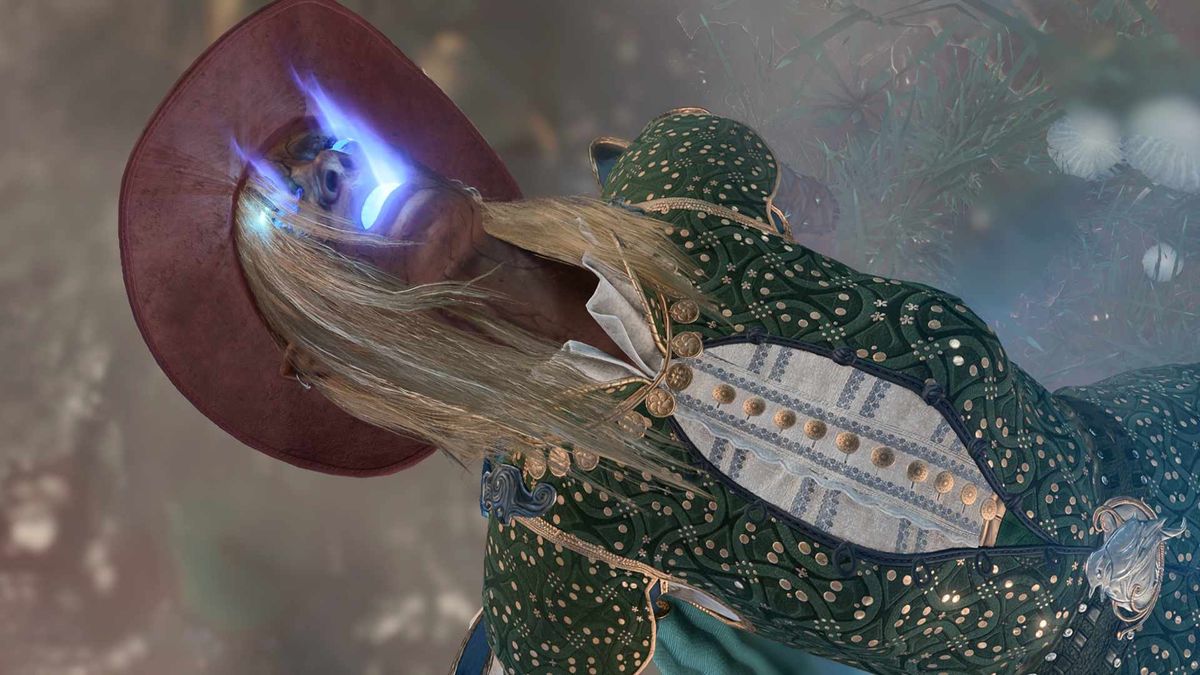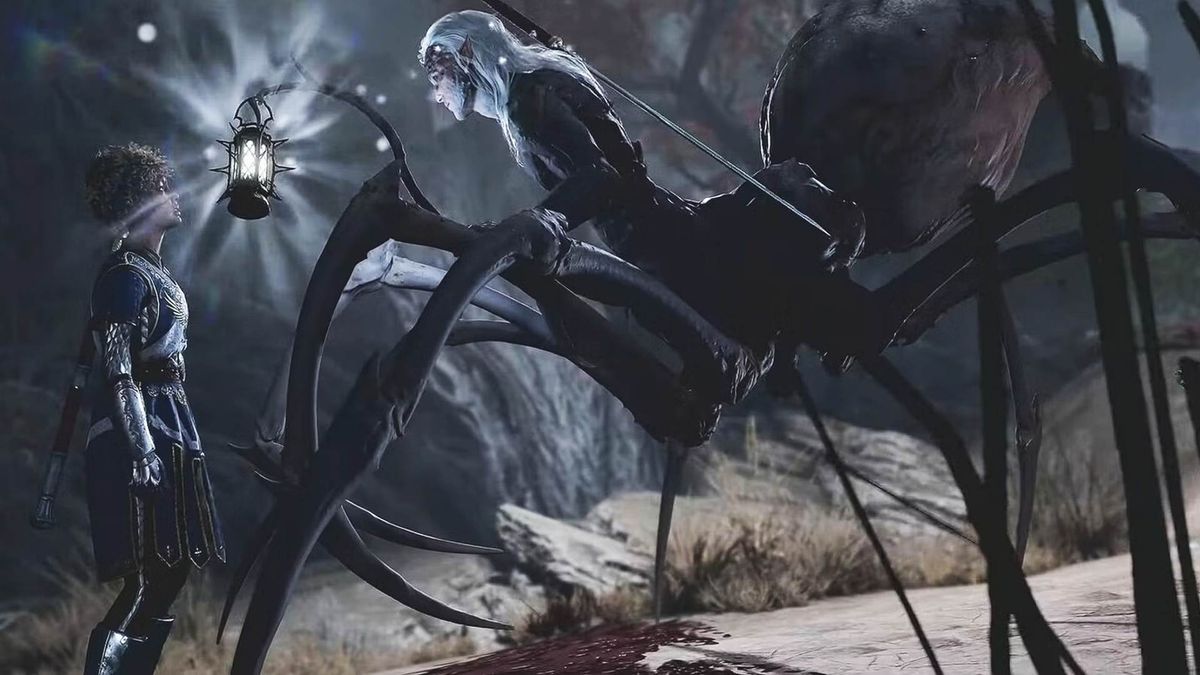Julian Gollop spent his youth playing chess, backgammon, and popular tabletop board games Dungeons and Dragons, Avalon Hill and SPI. He learned to code while at school, started making video games at 18, and founded development studio Mythos Games a year later, alongside his brother and father. In 1994, having previously shipped two single-player, turn-based tactics games in Rebelstar Raiders and Laser Squad, Civilization publisher MicroProse helped Gollop rework and expand a proposed Laser Squad sequel, which would ultimately become X-COM: UFO Defence – one of the most influential, genre-defining turn-based strategy games ever made.
Board games, novels, short stories, comics, clones, spiritual successors, and unofficial X-COM remakes followed, before, in 2012, Firaxis Games (the studio co-founded by Civilization mastermind Sid Meier) rebooted the series to great critical and commercial acclaim. From Mythos to MicroProse to Firaxis, X-COM had gone full circle in less than 20 years. Nine years after that again, and Phoenix Point’s arrival on console marks another full revolution for the turn-based strategy genre – one which echoes the central tenets of the longstanding genre itself.
“The last week?” says Gollop. “It’s pretty nerve-racking, to be honest, because it’s been a big launch! Not only the console release for Phoenix Point, we’ve also got new DLC and some free update stuff for PC players as well. It’s been tiring but rewarding, and it’s all been well-received so far.”
Shared goals

“I can’t say too much about what’s next, but we do have another DLC in the works, which we haven’t announced yet but I can assure you, it is all designed and is in production. Look out for some news on that in the near future.”
Julian Gollop, Snapshot Games
Phoenix Point, for the uninitiated, is the latest venture from Snapshot Games – the studio Gollop co-founded in 2013 – which launched in 2019 on PC, and has just arrived on PS4 and Xbox One with future launches (free upgrades if you opt for last-gen now) on PS5 and Xbox Series X planned. It follows on from the developer’s 2015 turn-based tactical role-playing game Chaos Reborn, and, by Gollop’s own admission, wouldn’t exist if not for Firaxis’ slant on X-COM. Granted the success of Chaos Reborn meant Snapshot was always likely to continue making turn-based strategy games, but it was the tangential success of the newly evolved X-COM series, now rebranded as simply XCOM, which guided Gollop and his studio’s next move.
Two decades on from UFO Defence, and a new generation of players were being introduced to a new breed of XCOM, one more streamlined than its source material, with flashier UI and a fully-interactive 3D environment. Gollop describes Firaxis’ work on carrying the XCOM torch forward as fantastic, and admits he was determined to use their platform as a means of bringing his meticulous vision of the genre to a current audience.
“I’ve always wanted the game to reach as wide an audience as possible,” says Gollop. “Even given the fact that it’s a pretty hardcore sort of strategy game, it still works on console. It’s great to have got the porting done, it will reach a wider audience there, and it’s also great that it’s on Game Pass, of course, because anybody subscribed will be able to get the best version of the game including all of its DLC. Which is a lot of content.”
“In terms of being inspired by Firaxis and what they’re doing with XCOM. We looked at some of the UI and presentation things they did and tried to match it, at least in terms of the way it works or in terms of the visual fidelity. Obviously, it has a fully 3D interactive environment with detailed models. The camera views and camera shots have these sort-of behind-the-shoulder views, so you need to make sure that graphically you can support that level of detail while still retaining this overall top-down view clarity that you get as a typical strategy game.”
“You also always need an overview of the battlefield working, so there’s a lot of inspiration there from the way they approached building things and presentation, the way some of the interface works, the fact you can see quite clearly where a character can move within a turn and things like that. So, yes, we quite shamelessly copied them on that or at least tried to match the quality of what they did there.”
Point of praise

Like Chaos Reborn before it, Phoenix Point was also crowdfunded prior to development, which meant much of its initial player-base was PC players. It’s more common for independent and smaller scale studios to crowdfund PC games, given the typical scale of developing games for current-gen consoles, and Gollop is ever-grateful to Snapshot’s sister studio, Saber Interactive in Minsk.
With Saber focusing on getting Phoenix Point ready on PS4 and Xbox One, and with PS5 and Xbox Series X incarnations on the horizon, Gollop and his core team were able to work on Phoenix Point’s fourth and latest portion of DLC – Corrupted Horizons, which, alongside the prior three DLC instalments, comes with the game’s console edition.
“It’s a bit of a Lovecraftian idea, where there’s this creeping mental corruption degradation it feels like it’s impossible to escape from, and when you go into these areas where you can become mentally corrupted, your squad’s going to suffer,” Gollop adds. “It all becomes a bit of a race to find the cure, and you need to work out how you can actually do it.”
“Through this mechanic there are benefits, namely the fact you’re able to research and develop this completely new class of soldier, which is really cool because it uses a whole bunch of different alien abilities which had previously been used against you.”

Corrupted Horizons also introduces a new monster which, well, let’s just say it’s pretty tough, not least because it’s evolved forms can spread corruption pretty damn rapidly. Gollop describes Phoenix Point as a shift towards Lovecraft, which is true, but it’s also a shift away from what we’re used to as players are forced to balance their squads, swapping their favourite soldiers in and out to avoid corruption, or adding in corruption-immune Mutoids who can’t heal.
It’s a cool trade-off that not only makes players think and switch up predictable play styles, but also adds a new layer of meticulous turn-based tactics – which better reflects XCOM of the ’90s more than XCOM of the 2010s, re-tangling the knots, intricacies and idiosyncrasies that Firaxis spent three games unravelling over the last nine years.
All of which I absolutely love. Better still, I love that Phoenix Point has even more of this in store, especially now that it’s available on so many platforms, for so many different audiences of players.
“I can’t say too much about what’s next,” says Gollop, “except that we do have another DLC in the works, DLC five, which we haven’t announced yet but I can assure you, it is all designed and is in production. And look out for some news on that in the near future.”
Need some more turn-based tinkering in your life? Look no further than the best strategy games out there right now.
 Games News games, movies and TV you love.
Games News games, movies and TV you love.



